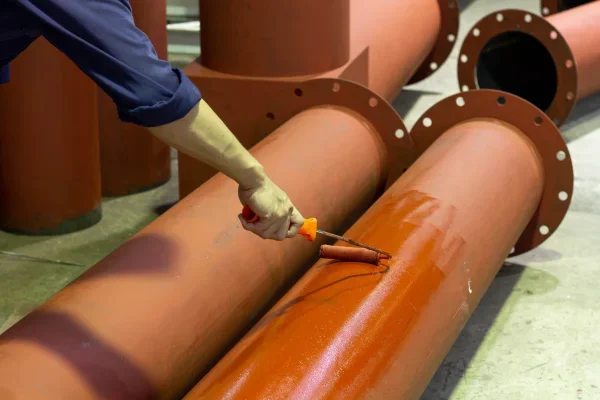The Role of Protective Coating Specialists in Industrial Spaces
Industrial spaces are the backbone of countless sectors—from manufacturing and energy to water treatment and warehousing. These environments demand high-performance infrastructure, and protecting that infrastructure is not just smart; it’s essential. That’s where a protective coating specialist comes in.
This role isn’t just about painting over surfaces. It’s a science-backed discipline rooted in corrosion control, environmental safety, regulatory compliance, and extending the life of expensive assets. For industrial facility managers, understanding the value a protective coating specialist brings can make all the difference between proactive maintenance and costly repairs.
Why Industrial Spaces Need a Protective Coating Specialist
Industrial environments are harsh. Think high humidity, chemical exposure, extreme temperatures, abrasive wear, and constant mechanical movement. Each of these factors can compromise the integrity of metal, concrete, and other substrates over time. A protective coating specialist helps prevent that deterioration through precise surface preparation and expert coating systems.They assess the operational conditions of a facility and recommend tailored solutions to meet both performance and budget goals. Without this expertise, coating failures can lead to production downtime, safety hazards, or environmental violations.Beyond that, specialists can proactively identify weak points in your infrastructure before they become liabilities. This ability to forecast and prevent problems is key to sustaining operational uptime and avoiding emergency repairs.
Core Responsibilities of a Protective Coating Specialist
A protective coating specialist plays a critical role in every phase of the coating lifecycle:
1. Surface Assessment and Analysis
Before any coating system is selected, the specialist conducts a thorough inspection of the surfaces involved. This may include analyzing surface contaminants, determining substrate conditions, or identifying early signs of corrosion. Often, this involves using advanced inspection tools like moisture meters, surface profile comparators, or chloride contamination test kits.
2. Coating System Specification
Not all coatings are created equal. Some environments call for epoxies, others require polyurethanes, and some demand zinc-rich primers. The protective coating specialist matches the right product to the job, based on environmental conditions and long-term durability requirements.They also factor in drying times, cure schedules, VOC content, and substrate compatibility. This ensures a coating system that performs as expected under the pressures of the job site.
3. Project Planning and Execution Oversight
From coordinating timelines to ensuring proper surface preparation (like sandblasting or power tool cleaning), the specialist works closely with contractors to ensure coatings are applied according to spec and manufacturer guidelines. Their oversight minimizes errors and maintains accountability.They also monitor ambient conditions like humidity and temperature before, during, and after application, which can significantly impact coating performance.
4. Quality Assurance and Inspection
Using tools like holiday detectors, dry film thickness gauges, and adhesion tests, the protective coating specialist verifies that every application meets industry standards and won’t fail prematurely. They document every step for audit and compliance purposes.In some cases, third-party inspectors are brought in to validate findings, especially on high-stakes projects with insurance or regulatory oversight.
Long-Term Value for Facility Managers
Hiring a protective coating specialist is an investment in risk reduction. Industrial facility managers already juggle safety, compliance, operations, and maintenance. Adding corrosion control expertise ensures one less thing to worry about.
Benefits include:
Extended equipment lifespan
Reduced maintenance costs
Minimized downtime
Improved worker safety
Regulatory compliance with OSHA, EPA, and other agencies
Enhanced facility appearance, which can boost morale and professionalism
Improved resale or audit value of your assets
In industries like food processing or pharmaceuticals, where cleanliness and compliance are paramount, a failing coating system can shut down an entire line. The right specialist prevents this scenario.
Regulatory and Environmental Compliance
Many industrial spaces operate under strict regulatory oversight. Protective coating specialists understand the ins and outs of environmental regulations, including volatile organic compounds (VOC) limits, waste disposal practices, and coating certifications like SSPC and NACE standards.By staying ahead of compliance requirements, facility managers can avoid fines, shutdowns, or reputation damage. Coating failures in regulated spaces may lead to contamination, product recalls, or environmental impact.Coatings also play a role in energy efficiency. Reflective roof coatings, for instance, can reduce HVAC loads. Floor coatings can also support LEED initiatives if they use low-emitting materials. This is where a protective coating specialist becomes a strategic partner.
How They Work with Facility Managers
A protective coating specialist doesn’t work in a vacuum. They collaborate with maintenance teams, project managers, safety officers, and procurement staff to ensure coatings align with operational goals. This collaborative model helps create a seamless bridge between planning and execution.When coating work is scheduled during planned outages or slow seasons, the specialist ensures the job is completed on time and with minimal disruption. They may also help develop long-term maintenance schedules and condition assessments, adding structure and predictability to future budgets.
Industry Trends Worth Knowing
New technologies are constantly shaping the industrial coatings space. From nanotechnology-enhanced coatings to environmentally friendly water-based systems, a knowledgeable protective coating specialist stays updated on innovations that can benefit your facility.For example, thermal barrier coatings can help reduce energy consumption, while self-healing coatings may soon provide longer-lasting corrosion resistance without repeated application.Drones and AI-based surface analysis are also entering the field, allowing faster inspections and predictive maintenance models. As these tools become more widespread, protective coating specialists will evolve into even more data-driven roles.If you’re interested in exploring how coatings intersect with environmental impact, the U.S. Green Building Council offers useful resources on how low-emitting materials contribute to healthier buildings and LEED credits.
Choosing the Right Protective Coating Specialist
Not every contractor offers this level of expertise. Look for certifications such as NACE Coating Inspector Level 1, SSPC Protective Coatings Specialist certification, or proven experience in your specific industry.Also, ask about previous projects, especially those with similar environmental challenges or scale. A specialist who understands the nuances of your operations will be more effective and less likely to disrupt production.At McCord Contractors, our team brings years of experience in high-performance industrial coatings. We tailor our approach to your facility’s needs, whether you’re maintaining a wastewater treatment plant or upgrading a food processing line. Our commitment to precision and performance means you get the results you expect, every time.
Final Thoughts
A protective coating specialist isn’t just another vendor—they’re a strategic partner in maintaining the performance, safety, and longevity of your industrial facility. The right coatings can prevent failures before they happen and help your operation stay efficient and compliant.Ready to protect your facility the smart way? Contact McCord Contractors today and speak with a protective coating specialist who understands your environment, your goals, and your bottom line.

